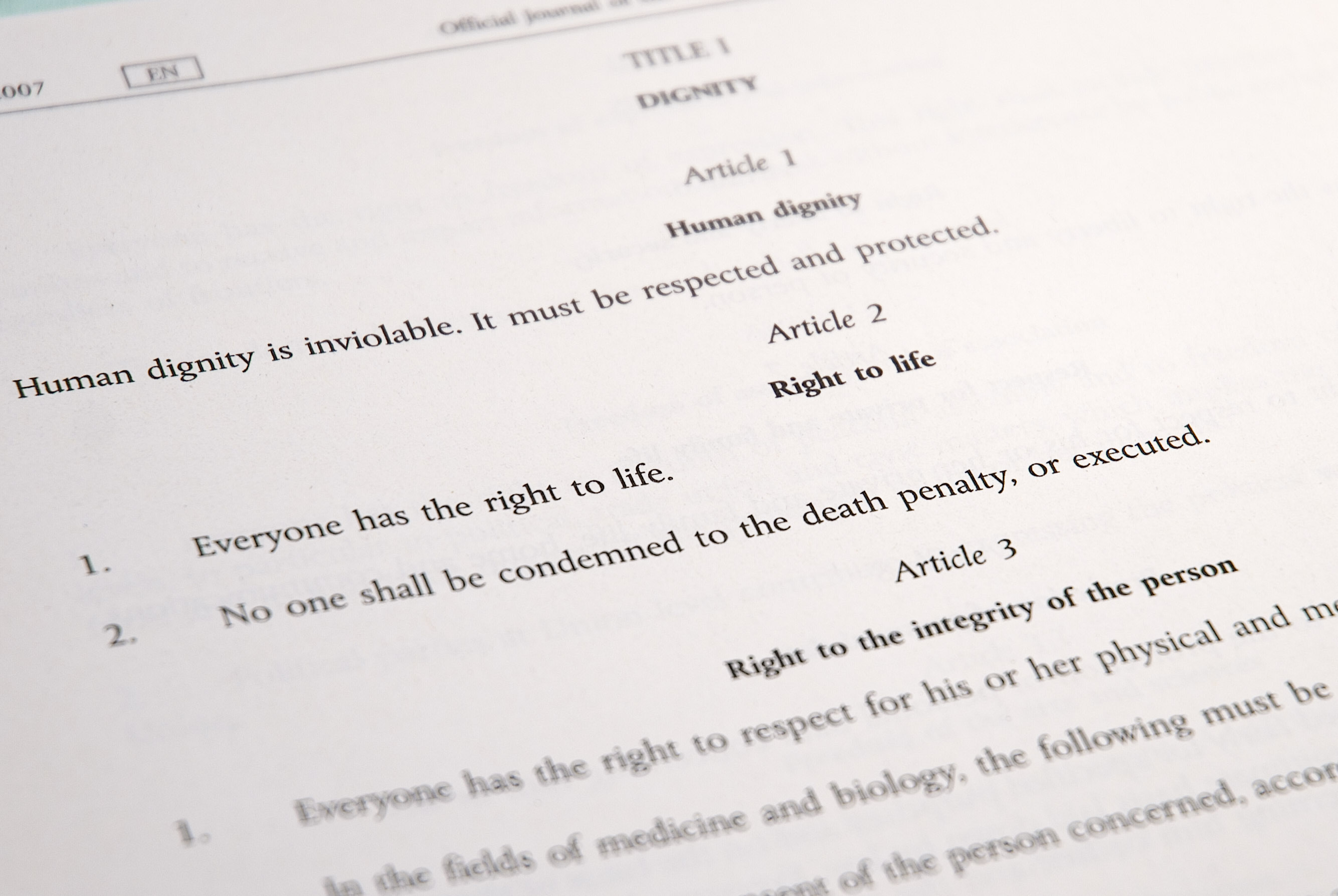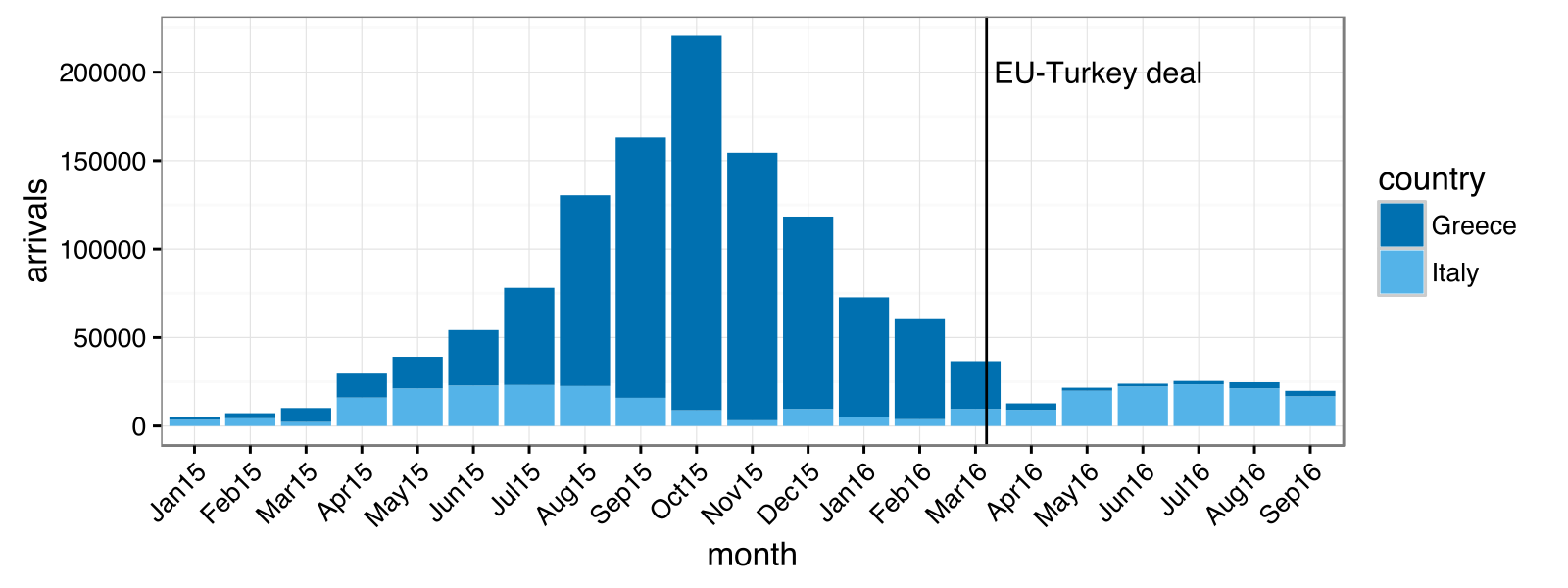|
Asylum, Migration And Integration Fund
The European Commission's Asylum, Migration and Integration Fund (previously the Return Fund, the Refugee Fund, and the Integration Fund) is a funding programme managed by the Directorate-General for Migration and Home Affairs which promotes the efficient management of migration flows and the implementation, strengthening and development of a common approach to asylum and immigration in the European Union. All EU Member States except Denmark participate in the implementation of this Fund. Most of the funds are provided to the EU Member States for activities addressing previously agreed upon themes. A part of the funding is reserved for emergency assistance. A final part is reserved for Union Actions, which are European Commission managed projects that are developed as either calls for proposals, direct awards, procurements, or delegation agreements. In addition to providing funding for projects, the programme funds the activities and future development of the European Migration Net ... [...More Info...] [...Related Items...] OR: [Wikipedia] [Google] [Baidu] |
Directorate-General For Migration And Home Affairs
The Directorate-General for Migration and Home Affairs (DG HOME) is a Directorate-General of the European Commission. The role of the body is to ensure the EU's security, to build a common EU migration and asylum policy, and to promote dialogue and cooperation with non-EU countries. Thereby, it contributes to the area of freedom, security and justice (AFSJ). Structure *Directorate A: Directorate for International and Horizontal Affairs *Directorate B: Schengen, Borders & Innovation *Directorate C: Migration, Asylum and Visa *Directorate D: Internal security *Directorate E: HOME Affairs Funds *Directorate F: Audit and Situational Awareness Additionally, there are the following Migration and Home Affairs Agencies: * European Agency for the operational management of large-scale IT systems in the area of freedom, security and justice (eu-LISA) * FRONTEX, European Border Coast Guard Agency (EBCGA) * European Asylum Office (EASO) * European Union Agency for Law Enforcement Cooperat ... [...More Info...] [...Related Items...] OR: [Wikipedia] [Google] [Baidu] |
European Migration Network
The European Migration Network (EMN) is an EU funded network, set up with the aim of providing up-to-date, objective, reliable and comparable information on migration and asylum for Institutions of the European Union, plus authorities and institutions of the Member States of the European Union, in order to inform policymaking. The EMN also serves to provide the wider public with such information. The EMN was established by the Council of the European Union Decision 2008/381/EC adopted on 14 May 2008. Objectives The need for Member States to exchange information on all aspects of migration, and to contribute to a common asylum and immigration policy was initially proposed by the Laeken European Council in 2001 and reinforced through the Thessaloniki European Council in 2003, the year the EMN was launched as a pilot project. The Hague Programme reinforced the need for common analysis of migratory phenomena, and the successor Stockholm Programme contains many elements for the b ... [...More Info...] [...Related Items...] OR: [Wikipedia] [Google] [Baidu] |
Stockholm Programme
The Stockholm Programme is a five-year plan with guidelines for justice and home affairs of the member states of the European Union for the years 2010 through 2014. Contents The programme contains guidelines for a common politics on the topics of protection of fundamental rights, privacy, minority rights and rights of groups of people in need of special protection, as well as a citizenship of the European Union. In the programme there are also plans for a new European security architecture through the extension of cooperation in the areas of police, military and secret services and measures in the area of border-crossing data exchange between state authorities and surveillance of the internet. It touches areas as different as homeland security, homeland and public security, human migration, migration (European pact on immigration and asylum), the combat against organized crime, and even family law, private law, inheritance law and others. There is supposed to be expansion of Euro ... [...More Info...] [...Related Items...] OR: [Wikipedia] [Google] [Baidu] |
Treaty On The Functioning Of The European Union
The Treaty on the Functioning of the European Union (TFEU) is one of two treaties forming the Treaties of the European Union, constitutional basis of the European Union (EU), the other being the Treaty on European Union (TEU). It was previously known as the Treaty Establishing the European Community (TEC). The Treaty originated as the Treaty of Rome (fully the ''Treaty establishing the European Economic Community''), which brought about the creation of the European Economic Community (EEC), the best-known of the European Communities (EC). It was signed on 25 March 1957 by Belgium, French Fourth Republic, France, Italy, Luxembourg, the Netherlands and West Germany and came into force on 1 January 1958. It remains one of the Treaties of the European Union, two most important treaties in the modern-day European Union (EU). Its name has been amended twice since 1957. The Maastricht Treaty of 1992 removed the word "economic" from the Treaty of Rome's official title and, in 2009, the ... [...More Info...] [...Related Items...] OR: [Wikipedia] [Google] [Baidu] |
Charter Of Fundamental Rights Of The European Union
The Charter of Fundamental Rights of the European Union (CFR) enshrines certain political, social, and economic rights for European Union (EU) citizens and residents into EU law. It was drafted by the European Convention and solemnly proclaimed on 7 December 2000 by the European Parliament, the Council of Ministers and the European Commission. However, its then legal status was uncertain and it did not have full legal effect until the entry into force of the Treaty of Lisbon on 1 December 2009. The Charter forms part of the area of freedom, security and justice (AFSJ) policy domain of the EU. It applies to all the bodies of the European Union and the Euratom which must act and legislate in accordance with its provisions, as the EU's courts will invalidate any EU legislation or ruling assessed as non-compliant with the Charter. The EU member states are also bound by the Charter when engaged in implementation of the European Union law. However, Poland has been granted a partia ... [...More Info...] [...Related Items...] OR: [Wikipedia] [Google] [Baidu] |
United Nations High Commissioner For Refugees Representation In Cyprus
The United Nations High Commissioner for Refugees Representation in Cyprus is an office of the United Nations High Commissioner for Refugees (UNHCR) opened in August 1974 upon the request of the Government of Cyprus and the Secretary-General of the United Nations. UNHCR Representation in Cyprus was designated as Coordinator of the United Nations Humanitarian Assistance for Cyprus. UNHCR was also responsible upon the request of the Cyprus Government to examine applications for refugee status. Simultaneously, UNHCR assisted the Government in developing their national legislation and procedure for the examination of asylum claims. The law came into life in 2000 and in January 2002 the Cyprus Government started receiving and processing asylum applications. The UNHCR Representation in Cyprus offices are located in the United Nations Protected Area (UNPA), where the United Nations Peacekeeping Force in Cyprus (UNFICYP) is based. Access to UNPA is restricted and tightly controlled by U ... [...More Info...] [...Related Items...] OR: [Wikipedia] [Google] [Baidu] |
Common European Asylum System
The European Union Agency for Asylum (EUAA) is an agency created by European Union Regulation 439/2010 within the area of freedom, security and justice framework to increase the cooperation of EU member states on asylum, improve the implementation of the Common European Asylum System, and support member states under pressure. History Founding In 2008, the European Commission proposed the creation of European Asylum Support Office (EASO) to boost cooperation between member states in managing asylum requests. Malta's EU ministers for immigration in 2010 agreed for EASO to be based in Malta, following discussions surrounding the continuous immigration of illegal immigrants mostly from the Horn of Africa, who reach Europe after passing through Libya. On 30 November in Brussels, at the Justice and Home Affairs Council, Malta was officially elected to host the organisation, winning out over candidates Cyprus and Bulgaria. The EASO regulation came into force on 19 June 2010 and w ... [...More Info...] [...Related Items...] OR: [Wikipedia] [Google] [Baidu] |
European Migrant Crisis
The 2015 European migrant crisis, also known internationally as the Syrian refugee crisis, was a period of significantly increased movement of refugees and migrants into Europe in 2015, when 1.3 million people came to the continent to request asylum, the most in a single year since World War II. Those requesting asylum in Europe in 2015 were mostly Syrians, but also included significant numbers of Afghans, Nigerians, Pakistanis, Iraqis and Eritreans, as well as economic migrants from the Balkans. Europe had already begun registering increased numbers of refugee arrivals in 2010 due to a confluence of conflicts in parts of the Middle East, Asia and Africa, particularly the wars in Syria, Iraq and Afghanistan, but also terrorist insurgencies in Nigeria and Pakistan, and long-running human rights abuses in Eritrea, all contributing to refugee flows. Many millions initially sought refuge in comparatively stable countries near their origin, but while these countries were largely ... [...More Info...] [...Related Items...] OR: [Wikipedia] [Google] [Baidu] |
Council Of The Baltic Sea States
The Council of the Baltic Sea States (CBSS) is a regional intergovernmental organisation working on three priority areas: Regional Identity, Safe & Secure Region and Sustainable & Prosperous Region. These three priority areas aim to address the themes of sustainable development, environment, sustainable maritime economy, education, labour, culture, youth engagement, civil security, children's rights and Human trafficking, trafficking in human beings. History The CBSS was established by the region's Foreign Ministers in Copenhagen in March 1992 as a response to the geopolitical changes that took place in the Baltic Sea region with the end of the Cold War. The CBSS founders were Hans-Dietrich Genscher, Uffe Ellemann-Jensen, Thorvald Stoltenberg, Lennart Meri, Jānis Jurkāns, Algirdas Saudargas, Henning Christophersen, Paavo Väyrynen, Andrei Kozyrev, Margaretha af Ugglas, and Krzysztof Skubiszewski. Since its founding, the CBSS has contributed to ensuring positive developments ... [...More Info...] [...Related Items...] OR: [Wikipedia] [Google] [Baidu] |
Human Migration
Human migration is the movement of people from one place to another with intentions of settling, permanently or temporarily, at a new location (geographic region). The movement often occurs over long distances and from one country to another (external migration), but internal migration (within a single country) is also possible; indeed, this is the dominant form of human migration globally. Migration is often associated with better human capital at both individual and household level, and with better access to migration networks, facilitating a possible second move. It has a high potential to improve human development, and some studies confirm that migration is the most direct route out of poverty.Age is also important for both work and non-work migration. People may migrate as individuals, in family units or in large groups. There are four major forms of migration: invasion, conquest, colonization and emigration/immigration. Persons moving from their home due to forced displa ... [...More Info...] [...Related Items...] OR: [Wikipedia] [Google] [Baidu] |
International Finance
International finance (also referred to as international monetary economics or international macroeconomics) is the branch of financial economics broadly concerned with monetary and macroeconomic interrelations between two or more countries. International finance examines the dynamics of the global financial system, international monetary systems, balance of payments, exchange rates, foreign direct investment, and how these topics relate to international trade. Sometimes referred to as multinational finance, international finance is additionally concerned with matters of international financial management. Investors and multinational corporations must assess and manage international risks such as political risk and foreign exchange risk, including transaction exposure, economic exposure, and translation exposure. Some examples of key concepts within international finance are the Mundell–Fleming model, the optimum currency area theory, purchasing power parity, interest rate pari ... [...More Info...] [...Related Items...] OR: [Wikipedia] [Google] [Baidu] |


